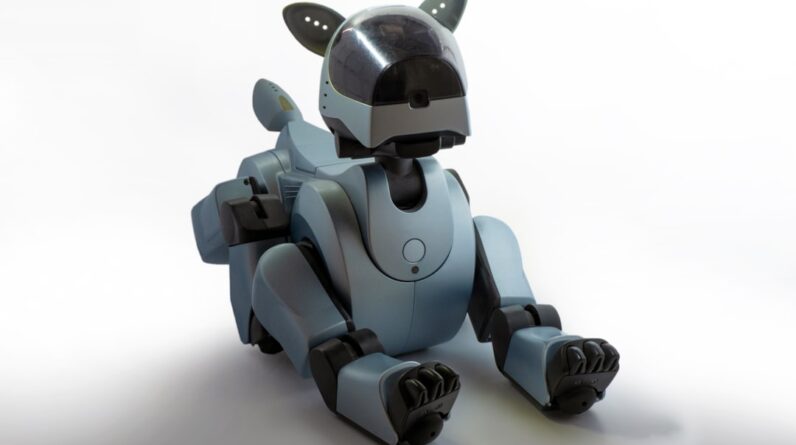In the realm of smart technology, few innovations have captured the public’s imagination quite like Amazon’s Alexa. Launched in 2014, this voice-activated virtual assistant has transformed the way you interact with your devices and manage your daily tasks. With a simple command, you can play music, control smart home devices, set reminders, and even order groceries.
Alexa has become a household name, synonymous with convenience and innovation. As you delve deeper into the world of Alexa, you will discover not just a tool for efficiency but a glimpse into the future of human-computer interaction. The allure of Alexa lies in its ability to understand and respond to natural language, making technology feel more accessible and intuitive.
You may find yourself speaking to Alexa as if it were a friend, asking questions or requesting assistance without the need for complex commands. This seamless interaction has made Alexa an integral part of many homes, showcasing how artificial intelligence can enhance everyday life. As you explore the capabilities and underlying technology of Alexa, you will gain a better understanding of how this virtual assistant has evolved and what it means for the future of artificial intelligence.
Key Takeaways
- Alexa is a virtual assistant developed by Amazon, capable of voice interaction, music playback, making to-do lists, setting alarms, streaming podcasts, playing audiobooks, and providing weather, traffic, sports, and other real-time information.
- Artificial Intelligence (AI) refers to the simulation of human intelligence in machines that are programmed to think and act like humans. It involves the study and development of intelligent agents that can perceive their environment and take actions to maximize their chances of success.
- Alexa’s capabilities include voice interaction, music playback, making to-do lists, setting alarms, streaming podcasts, playing audiobooks, and providing weather, traffic, sports, and other real-time information.
- The technology behind Alexa involves natural language processing, automatic speech recognition, and machine learning to understand and respond to user commands and queries.
- Machine learning plays a crucial role in Alexa’s ability to continuously learn and adapt to user preferences and behavior, improving its performance over time.
Understanding Artificial Intelligence
To appreciate the significance of Alexa, it is essential to grasp the concept of artificial intelligence (AI). At its core, AI refers to the simulation of human intelligence processes by machines, particularly computer systems. These processes include learning, reasoning, problem-solving, perception, and language understanding.
As you navigate through various AI applications, you will notice that they are designed to perform tasks that typically require human intelligence, thereby streamlining processes and enhancing productivity. AI can be categorized into two main types: narrow AI and general AI. Narrow AI is designed to perform specific tasks, such as voice recognition or image classification, while general AI aims to replicate human cognitive abilities across a wide range of activities.
Alexa falls under the category of narrow AI, as it is specifically programmed to assist users with various tasks through voice commands. Understanding this distinction will help you appreciate the limitations and potential of AI technologies like Alexa.
Alexa’s Capabilities

Alexa’s capabilities are vast and varied, making it a versatile assistant for your daily needs. One of its primary functions is voice recognition, allowing you to issue commands hands-free. Whether you’re cooking in the kitchen or relaxing on the couch, you can simply say “Alexa” followed by your request.
From playing your favorite songs to providing weather updates or answering trivia questions, Alexa is designed to make your life easier and more enjoyable. In addition to basic tasks, Alexa can integrate with numerous smart home devices, enabling you to control lighting, thermostats, and security systems with just your voice. Imagine walking into your home and saying, “Alexa, turn on the lights,” or “Alexa, set the thermostat to 72 degrees.” This level of convenience not only enhances your comfort but also contributes to energy efficiency.
Furthermore, Alexa can help you manage your schedule by setting reminders, adding events to your calendar, or even making phone calls—all through simple voice commands.
The Technology Behind Alexa
The technology that powers Alexa is a sophisticated blend of natural language processing (NLP), machine learning algorithms, and cloud computing. At its core, NLP enables Alexa to understand and interpret human speech. When you speak to Alexa, your voice is converted into text through speech recognition technology.
This text is then analyzed using NLP techniques to determine your intent and formulate an appropriate response. Cloud computing plays a crucial role in Alexa’s functionality as well. By leveraging Amazon’s vast cloud infrastructure, Alexa can access a wealth of information and resources in real-time.
This allows for quick responses to your queries and seamless integration with third-party services. The combination of NLP and cloud computing ensures that Alexa remains responsive and accurate in understanding your requests, making it a powerful tool for everyday tasks.
The Role of Machine Learning in Alexa
Machine learning is a subset of artificial intelligence that focuses on the development of algorithms that allow computers to learn from data and improve their performance over time. In the case of Alexa, machine learning plays a pivotal role in enhancing its capabilities and responsiveness. As you interact with Alexa, it collects data on your preferences and usage patterns, which helps it refine its understanding of your needs.
For instance, if you frequently ask Alexa for news updates from a specific source or request particular playlists, machine learning algorithms analyze this data to tailor responses that align with your preferences. This continuous learning process enables Alexa to provide more personalized experiences over time. As you engage with the assistant more frequently, you’ll notice that it becomes increasingly adept at anticipating your needs and delivering relevant information.
Alexa’s Ability to Learn and Adapt

One of the most impressive aspects of Alexa is its ability to learn and adapt based on user interactions. This adaptability is not just limited to recognizing voice commands; it extends to understanding context and preferences as well. For example, if you often ask for weather updates in the morning while preparing for work, Alexa may begin proactively providing this information without you needing to ask.
This learning capability is facilitated by machine learning algorithms that analyze vast amounts of data from user interactions. As you continue to use Alexa, it becomes more attuned to your unique preferences and habits. This means that over time, your interactions with Alexa can become more efficient and tailored to your lifestyle.
The more you engage with the assistant, the better it becomes at serving your needs.
Alexa’s Limitations as Artificial Intelligence
Despite its impressive capabilities, Alexa is not without limitations. As a narrow AI system, it lacks true understanding or consciousness; it operates based on pre-defined algorithms and data patterns rather than genuine comprehension. While it can respond accurately to many queries, there are instances where it may misinterpret commands or fail to provide satisfactory answers due to ambiguity or complexity in language.
Moreover, privacy concerns have been raised regarding the data collected by Alexa during interactions. While Amazon has implemented measures to protect user privacy, the fact remains that voice recordings are stored in the cloud for analysis and improvement purposes. This raises questions about data security and user consent that are important for you to consider when using such technology.
The Future of Alexa and Artificial Intelligence
Looking ahead, the future of Alexa and artificial intelligence appears promising yet complex. As advancements in AI technology continue to unfold, we can expect even greater integration of virtual assistants into our daily lives. Future iterations of Alexa may feature enhanced contextual understanding, allowing for more nuanced conversations and interactions that feel increasingly human-like.
Additionally, as machine learning algorithms evolve, Alexa could become even more adept at predicting user needs based on historical data and contextual cues. Imagine a scenario where Alexa not only responds to your commands but also anticipates your requirements before you even articulate them. This level of sophistication could revolutionize how you interact with technology in your home and beyond.
In conclusion, as you explore the world of Alexa and artificial intelligence, you’ll find a landscape filled with potential and challenges alike. While there are limitations to what AI can achieve today, ongoing advancements promise a future where virtual assistants like Alexa become even more integral to our lives—enhancing convenience while also raising important questions about privacy and ethical considerations in technology use. Embracing these innovations will require a balance between leveraging their benefits while remaining mindful of their implications for society as a whole.
Is Alexa an artificial intelligence? According to a fascinating article on AI and space exploration, the technology behind virtual assistants like Alexa is indeed a form of artificial intelligence. This article explores how AI is revolutionizing research and missions in space exploration, showcasing the incredible potential of this cutting-edge technology.
FAQs
What is Alexa?
Alexa is a virtual assistant developed by Amazon, capable of voice interaction, music playback, making to-do lists, setting alarms, streaming podcasts, playing audiobooks, and providing weather, traffic, sports, and other real-time information.
Is Alexa an artificial intelligence?
Yes, Alexa is considered to be an artificial intelligence (AI) as it uses machine learning and natural language processing to understand and respond to user commands and questions.
How does Alexa work as an AI?
Alexa works as an AI by using advanced algorithms to process and understand natural language, enabling it to interpret and respond to user requests and commands in a conversational manner.
What are some examples of Alexa’s AI capabilities?
Some examples of Alexa’s AI capabilities include understanding and responding to voice commands, learning user preferences over time, and integrating with smart home devices to perform tasks such as turning on lights or adjusting thermostats.
Can Alexa learn and improve over time?
Yes, Alexa can learn and improve over time through machine learning algorithms that enable it to adapt to user preferences, understand speech patterns, and provide more accurate and personalized responses.






